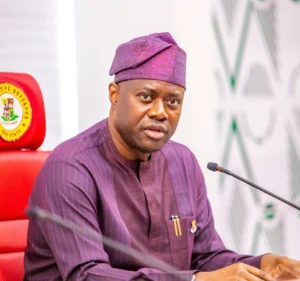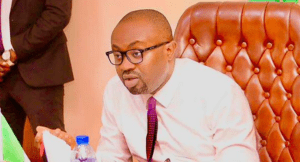Rising above gender stereotypes, bridging gaps, breaking biases
By Rachel Afolabi
Just a week ago, the International Women’s Day, which holds annually on March 8th, was celebrated across the globe in order to commemorate the social, political and economic achievements of women. It also served as a means of recognising and celebrating women who are speaking up with a loud voice towards ridding the society of gender violence, discrimination and stereotypes popularly held against the female gender.
Over the years, significant steps have been taken in the global fight for women’s rights which seek to defy the odd of stereotypes, break the deep-rooted bias and allow women to be able to participate freely in diverse sectors like politics, tech, engineering, and so on with no fear of limitation or restriction as a result of being a girl child. The need for a change to the already existing status quo gives rise to advocating for women empowerment and allowing for their participation in the development of the society.
Although the struggle for gender equality and breaking the biases against women is far from being a complete success and looking at the way gender intersects with race, class, politics, career, and sexuality, some influential and resilient women across the world are stepping out and taking the lead by lending their voices to the fight. They have continued to give a ray of hope to others that they are in the right direction of embracing and promoting the power of womanhood whilst inspiring others to do so.
It is no surprise that most societies are embedded in a patriarchal system, which places power in the hands of men. Men are considered dominant and are often believed to perform better than their female counterparts. These beliefs, which portray the women folks as inferior compared to men foster the bias and stereotypes popularly held against women. And of course, this has widened the gap of gender inequality. All of these combined to inspire the theme for this year’s IWD, ‘Gender equality today for a sustainable tomorrow’.
It is also paradoxical to note that in the month when the world celebrated the IWD’22, Nigerian women took to the street in their numbers and marched to the national assembly to register their dissapointment at the parliamentarians’ actions that rejected the five gender bills during the constitution amendment. Their cry of protest is for their voice to be heard and to also see women having a minor stake in areas that have been predominantly dominated by men.
Women remain underrepresented and face biases as regards taking leadership roles. At times, they are not allowed to actualise their full potentials and harness their innate abilities. Women, when given the opportunity, can do excellently well. As such, they should be allowed to participate and get involved in development roles in the nation.
It takes saying no to the stereotypes and discrimination held against women, saying no to gender violence, creating a world free of bias, breaking the wall of limitations, not depriving females of formal education and leadership positions, not objectifying women and also giving the girl child a chance to freely express herself. We need to do more to empower girls and women in our society to completely rid the increasing burden of poverty on women, the inequalities, unequal access to education and training for women.
Women also easily fall victims of violence. A 2021 study by UN on women based in 13 countries showed that almost one in two women reported that they or a woman they know experienced a form of violence during the Covid-19 pandemic which includes non-physical abuse with verbal abuse and the denial of basic resources being the most commonly reported. Prevalent inequality in economic structures have to be stopped at all levels in order to promote the advancement of women.
Educating children from an early age about the importance of gender equality, changing our perception of the girl child, providing equal rights to education of the girl child, giving women more roles to play are necessary steps towards addressing gender inequality and rising above the stereotype.
When women are productive and adequately engaged in our society, they will definitely add to the country’s growth and development. They should be given more room to participate and break free from the claws of gender discrimination and inequalities. It is not enough to know that there is a bias against women but that this bias has to be broken to bridge the gap of gender inequality. The task is for everyone in the society to change the age-long practices and beliefs that have given women the shorter end of the stick.
Both genders are unique, different and special in the way nature has them made out to be. It is now pertinent that they both have equal chances to carry out their innate abilities for the common good of all.




